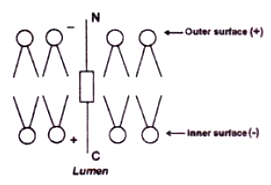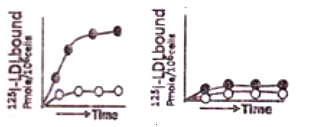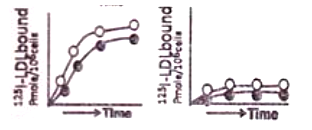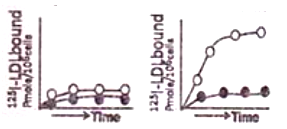 Multiple Choice Questions
Multiple Choice QuestionsIn isoelectric focusing experiments, proteins are separated on the basis of their
relative content of only positively charged residues.
relative content of only charged residues.
relative content of positively and negatively charged residues.
mass to charge ratios
Which one of the following is unfavourable for protein folding?
Hydrophobic interaction
van der Waals interaction
Conformational entropy
Hydrogen bonding
The maximum number of hydrogen bonds that can form between H2N-NH2 (hydrazine) and water is
2
1
3
4
The peptide unit (Cα - C'O - NH - Cα) is planar due to
restriction around Cα - C' bond
restriction around C' - N bond
restriction around N - Cα bond
hydrogen bonding between the carbonyl oxygen and imino hydrogen of the peptide backbone.
Which one of the following is the most appropriate statement regarding folded proteins?
Charged amino acid side chains are always buried.
Charged amino acid side chains are seldom buried.
Non-polar amino acid side chains are seldom buried.
Tyrosine residues are always buried.
Molecules primarily responsible for the formation of lipid raft are
phosphatidylserine and phosphatidyl choline
phosphatidyl inositol and cholesterol
glycosylphosphatidylinositol and cholesterol
sphingolipids and cholesterol
You are studying a protein that inserts itself into a model membrane (liposomes) during a reconstitution process. The protein has an N-terminal, 18-amino acid hydrophilic segment that is located on the outside of the membrane, a 19-amino acid hydrophobic transmembrane segment flanked by negatively and positively charged amino acids, and a C-terminal domain that resides inside the lumen (as depicted below in the form of a cartoon).

For proper reconstitution of the protein, which of the following strategies will be appropriate?
Increase the number of negatively charged amino acids in the N-terminal.
Increase the number of positively charged amino acids in the C-terminal.
Removal of positively charged amino acids from the C-terminal.
Increase the length of the hydrophobic segment.
Aquaporins are a class of proteins that are relatively abundant in plant membranes. Following are certain statements regarding the properties of aquaporins:
A. Aquaporins form water channels in membrane.
B. Some aquaporins also transport uncharged molecules such as NH3.
C. The activity of aquaporins is not regulated by phosphorylation.
D. The activity of aquaporin is regulated by calcium concentration and reactive oxygen species.
Which one of the following combinations of above statements is correct?
A, B, and D
B, C, and D
A, C, and D
A, B, and C
In terpene biosynthesis pathways, three acetyl-CoA are joined together stepwise to form mvalonic acid. Which one of the following three steps is required by mevalonic acid to form ispentenyl diphosphate or isopentenyl pyrophosphate (IPP)?
Pyrophosphorylation, decarboxylation and dehydration
Alkylation, pyrophosphorylation and decarboxylation
Methylation, dehydration and alkylation
Phosphorylation, carboxylation and methylation
Patients suffering from familial hypercholesterolemia (FH) are mostly homozygous for the defective gene and have profoundly elevated levels of serum cholesterol. The reason may be that the gene for highly specific receptor for LDL is either defective or missing in these patients. In an experiment, cells were taken from both normal individual and homozygotes (FH) subjects, incubated in buffer with 125I-labeled LDL in presence or absence of access unlabeled LDL for various time periods and them 125I-labeled LDL bound to cells was measured. Which of the following is the bestfit graph for the above experiment?




